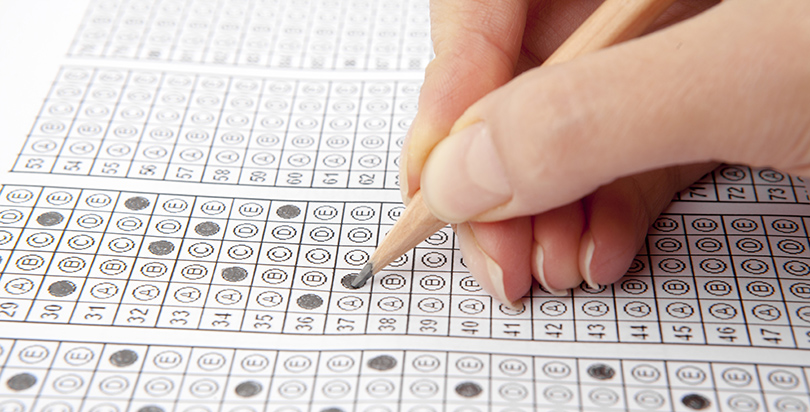I’d learned quickly during my first year of teaching that I needed to account for the days that would be dedicated to testing activities when planning my lesson pacing. These are activities which include extra drills, review sessions, and diagnostic testing designed to improve students’ scores on standardized tests. Here’s an average example of the number of days I would take out and the activities to which they would be dedicated:
- 28 days dedicated to review between March spring break and May testing
- 6 days dedicated to practice of end-of-course tests to “predict” where our kids were
- 3 days dedicated to district-mandated diagnostic tests
That’s 37 days, or 20 percent of the school year, spent on activities preparing students for tests.
When any profession dedicates so much of it’s time to something, we should make sure that the activity is worthwhile. Anecdotes abound about whether this is time well spent or not, usually trending towards the latter. But up to now, the education profession hasn’t had a good data-driven picture of how valuable teachers believe this test preparation to be.
A new report by Teach Plus, “The Best of Time or the Worst of Time? What Teachers Think About Test Preparation,” provides valuable insight into this subject. “Test prep” has become a charged phrase in our education discourse. What teachers know, and what this study clearly shows, is that the value of test prep isn’t a black or white proposition. Yes, test prep can be bad. But it can also be highly valuable when used correctly.
As the report shows, test prep encompasses a plethora of different activities (the report identifies 17 of them) that teachers use with their students. In fact, many of the more creative strategies I was able to employ as a geometry teacher could have been classified as test prep in some way.
The report, which I co-authored, was written largely by teachers and based on questionnaire responses of educators across the country. In the study, we set out to determine whether or not teachers view test prep as time well spent. The report, based on a non-random sample of teachers, contains several valuable findings:
Perhaps most notably, the report found no strong consensus about whether too much time is spent on test prep among educators. Some teachers could spend as little as five hours a month and think it was too much, while others could spend 26 hours and think it was just right! This suggests that this isn’t a simple question of “too much too little?” when it comes to time spent on these activities.
The report’s findings demonstrate that satisfaction with test prep activities comes down to three things. The first is the alignment between the test and the curriculum. Teachers with a better test-curricular alignment were much more likely to agree that test prep time was “about right” compared to those with poor alignment. This seems like common sense – from a teacher’s standpoint, the important part isn’t the time that is spent, but how well what they are teaching is aligned to the final assessment tool.
The next two findings are more significant to me as a teacher because they emphasize the importance of treating teachers as professionals in allowing them to select the activities they deem appropriate.
Teachers’ belief in the value of test prep time hinges on the value they see in the activities they can utilize during that time. Teachers in our study reported that they value activities like developing computer skills, writing workshops, or giving students creative and challenging activities. And when they are given the chance to execute these valued activities, belief in the value of test prep time goes up.
Again, intuitively it makes sense that teachers would support an activity if they get to pick what they most value. And this meshes well with my own experience. During my first year of teaching, many of my test prep activities were dictated to me and I didn’t find them valuable. For example, I was given a set of goals to re-teach every day after spring break. The problem was that, as the teacher, I knew that many of these goals were too ambitious to teach on any given day. The methods, such as the online math programs I found to be of little use, were also dictated to me. I forged ahead anyways with predictable results. If you had asked me then, I would have said that test prep was a complete waste of time.
Like any professionals, teachers value the work they do more when they are treated with the respect their experience deserves. Like it or not, we need to test our students to get a picture of how well they are performing, and this will always necessitate some kind of preparation time dedicated to testing. But it should come as no surprise that teachers thrive when given the autonomy to use this time as they see fit based on their own expertise.
I encourage policymakers grappling with the reality of test preparation to read our report, and learn how to use test prep not only to prepare students, but to empower teachers.
Get stories like these delivered straight to your inbox. Sign up for The 74 Newsletter


;)